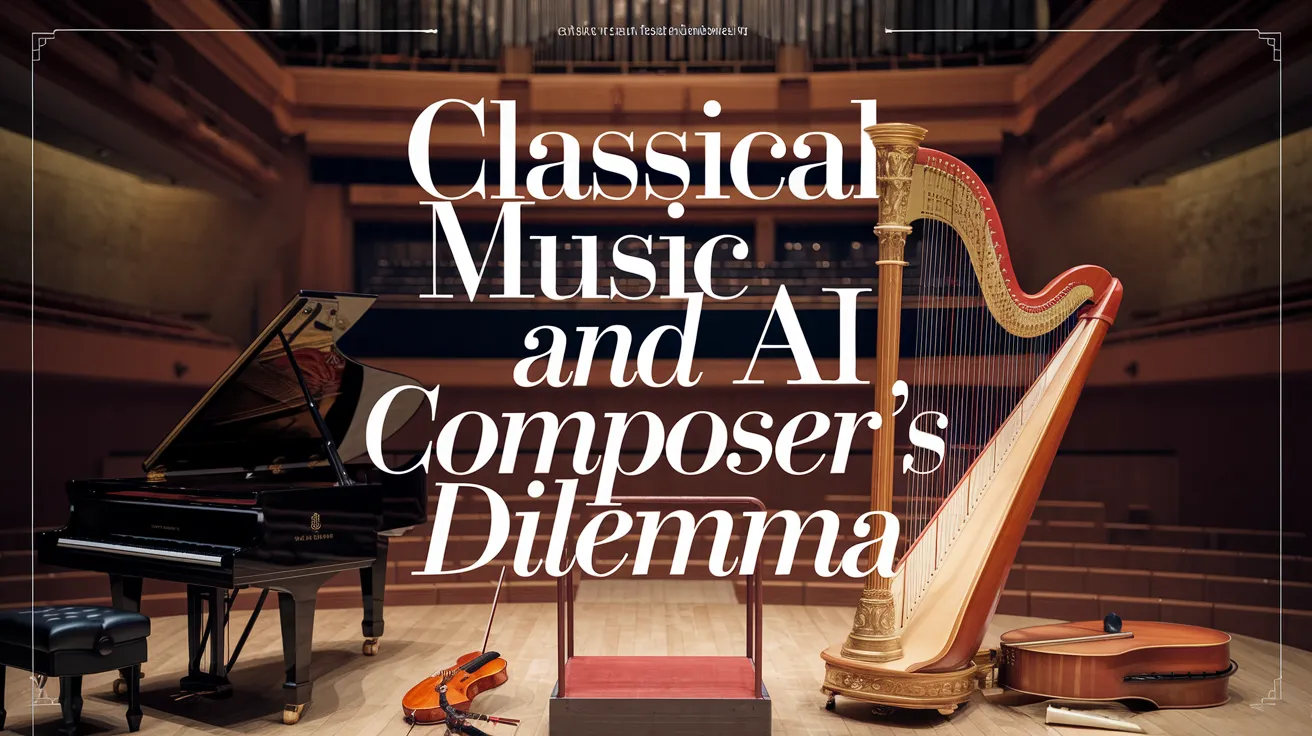Classical Music and AI: A Composer’s Dilemma

Technology is radically reshaping how we make music. Delving into this for a BBC Radio 3 documentary, I began to question whether creative organizations should be so optimistic about AI. Are we riding the wave of innovation, or will it ultimately be our downfall?
In June, I visited a hacker mansion in Hillsborough, a reflection of Silicon Valley’s blend of startup culture and luxury. This mansion, adorned with tech founder portraits and landscaped gardens, served as a backdrop for our interviews exploring the intersection of generative AI and classical music. Engaging with fellow creatives, I was met with a stark prediction: soon, professionals in the arts would be rendered mere hobbyists. This was not a provocative claim, but a straightforward assessment. When my producer, Fay Lomas, expressed concern about her job security, the tone in the room shifted, illuminating the gravity of our discussion.
Initially curious about the potential of AI, I soon felt the conversation pivot dramatically. What began as dialogue about collaboration swiftly transitioned to discussions on replacement, highlighting a chilling reality for many in the creative sectors. That exchange encapsulated the tension in our narrative; a moment where theoretical discussions transformed into stark, personal stakes.
As I reflect on this now, I cannot ignore the summer’s backdrop: the iconic Knebworth concert by Oasis in 1996, where 250,000 fans gathered in unity—a poignant reminder of communal experiences before the digital age reshaped music. This collective experience faded with the emergence of streaming services and algorithm-curated playlists, which have replaced artist-driven curation with passive consumption driven by software.
Amidst these shifts, I discovered RBO/Shift—a new initiative from the Royal Ballet and Opera that seeks to explore the relationship between art and AI. While I admire the institution and its leadership, I found their approach concerning. Despite their optimistic outlook on AI collaboration, key issues such as ethics, environmental impact, and the precarious status of artists were glaringly absent from their discussions.
The director of the Royal Opera, Oliver Mears, stated that embracing AI is essential to avoid stagnation. However, during my conversations with those embedded within San Francisco’s tech scene, I sensed a contrasting perspective. What they refer to as riding the wave suggests passivity, while their focus remains on harnessing control over the influx of technological advancement.
The term I previously employed, “the cat’s out of the bag,” now feels insufficiently critical, suggesting a moral complacency that arises with new technologies. Observing major institutions engaging with AI as if it were an innocuous advancement, rather than a potentially hazardous force, echoes dangerously naive sentiments. It’s alarming that organizations treat this technology akin to atomic energy, without acknowledging the myriad risks intertwined with its use.
As our documentary feels increasingly like a relic of a bygone era, it’s apparent that our discussions must evolve with the rapid pace of change. The intimate moment captured in the hacker mansion, characterized by sunlight and serene conversations, feels suspended in time—representing the last flicker of human apprehension before technology’s inevitable advance.
If Oasis at Knebworth marked a climactic moment before the digital era took hold, perhaps our captured dialogue signifies a brief pause before machines begin composing their own scores in the world of music. I remain a proud composer, but as the landscape shifts, I cannot help but ponder the fate that awaits creatives within this emerging reality.
Tarik O’Regan is a London-born composer based in San Francisco. The Artificial Composer, a BBC Radio 3 Sunday feature produced by Fay Lomas, is available now on BBC Sounds.